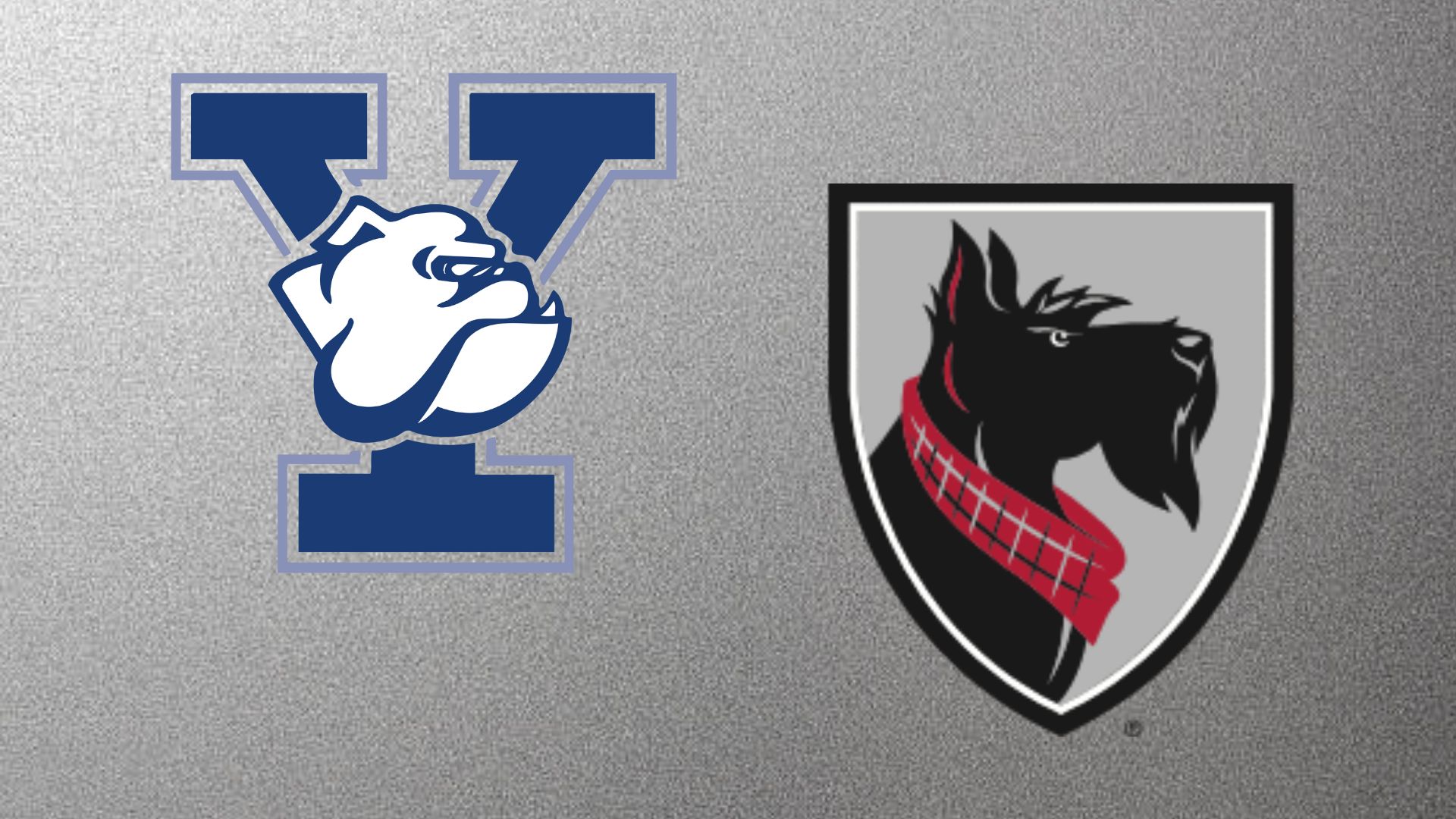Carnegie Mellon, Mid-Atlantic Hub Host First NSF I-Corps Cohort for AI, Robotics
Aaron AupperleeWednesday, May 21, 2025Print this page.

Advancements in artificial intelligence and robotics fueled by university research will launch new startups destined to change the way people live, work, learn and play.
To help faculty, students and alumni transform their research into the next generation of companies, Carnegie Mellon University's Project Olympus — part of the Swartz Center for Entrepreneurship — and the National Science Foundation Innovation Corps Hub Mid-Atlantic Region recently hosted entrepreneurs and researchers in AI and robotics.
The cohort was the first NSF I-Corps program in the country to focus specifically on AI and robotics and reflects the expertise of CMU and its Mid-Atlantic I-Corps Hub partner institutions in commercializing research in these fields.
"Carnegie Mellon was so proud to lead the charge on the first AI and robotics NSF I-Corps cohort in the country with our partners across Pennsylvania and Maryland," said Meredith Meyer Grelli, director of Project Olympus and the assistant dean of entrepreneurship initiatives for the School of Computer Science. "Throughout the sessions, companies in the AI and robotics space worked intensively on customer discovery with mentors and experts in the fields to bring their ideas closer to product market fit."
The cohort sessions happened virtually throughout April. Twenty-five teams of faculty, students and alumni from CMU, the University of Maryland, Penn State University, Johns Hopkins University, the University of Pennsylvania and more learned how to navigate the commercialization process.
"The convergence of world-class AI and robotics research at Carnegie Mellon within the growing innovation ecosystem across Pennsylvania and the Mid-Atlantic is creating something truly transformative," said Dan Kunitz, director of the Mid-Atlantic I-Corps Hub and director of venture strategy and development at the University of Maryland. "It has been especially gratifying to see the NSF-funded Mid-Atlantic I-Corps Hub directly catalyze this potential through initiatives like the inaugural AI and robotics regional cohort. We are excited to see the groundbreaking ventures that will emerge from these programs."
Sessions focused on generating business models, designing value propositions and conducting customer discovery. Teams heard from seasoned entrepreneurs, investors and others on what to expect as they brought their ideas to market. Founders of startups ranging from virtual reality technology and electroadhesive clutches and brakes to planetary and underwater exploration shared their stories and advice with the teams.
The founders of True AI, a company aiming to stop large language models from hallucinating and to mitigate bias from training data, said sharing the cohort with experts in AI and robotics and fellow entrepreneurs in that space was inspiring and helpful. Many of the companies encountered similar feedback and challenges during customer discovery conversations.
"Even though all the companies were doing relatively different things, we were all interacting with the same type of customers," said Cyprien Riboud-Seydoux, a rising sophomore majoring in computer science and a founder of True AI. "And since we're all talking to the same type of people, we learned a lot from the conversations that others had."
Aidan Zhang, a rising sophomore majoring in artificial intelligence and a founder of True AI, said a few lessons seemed especially applicable for AI companies, like innovating quickly to keep up with an ever-changing field and iterating on feedback as quickly as possible to match customer demands.
Both Zhang and Riboud-Seydoux said focusing on the customer helped them narrow their focus. When they started the I-Corps program, they thought True AI would be useful for everyone. Now, they want to focus first on law firms and legal companies that complete document analysis, draft legal documents and perform other services. Health care and clinical transcription could be the company's next area of focus.
"The purpose of I-Corps — and they really drill this into you — is to understand your market," Zhang said. "It doesn't matter how good your product is or how much you think it could change the world. If you haven't gone out and talked to your customers and found a market, you're not ready to launch your product yet."
True AI started after Zhang and Riboud-Seydoux attended an AI ethics lecture during one of their first courses in CMU's School of Computer Science. The two lived in the same dormitory and teamed up with Guillaume Atencia, who was also majoring in computer science. Before long, Zhang's room became coding central as they built out their product. They knew early on that they wanted to start a company. Innovations in AI funnel into industry quickly, they said, and issues with hallucinations, bias and trust blocked these technologies from reaching their full potential.
"We had a passion to create an impact," Zhang said. "We learned about a problem that we really could address."
The 25 I-Corps teams are creating companies devoted to a range of projects, including an AI-powered nanny robot to help parents and caregivers monitor kids and keep them safe and engaged; an autonomous underwater robot that inspects and cleans midsize boat hulls; AI that ensures people get the correct medication; a smart collar and mobile app to help owners understand their pets; and a mobile app designed to make food allergy management safer and easier.
"Researchers continue to push the applications of AI and robotics and are developing life-altering and life-saving technologies," said Jen Gilburg, deputy secretary of technology and entrepreneurship for Pennsylvania's Department of Community and Economic Development and a member of the Project Olympus advisory board. "To field a cohort focused specifically on these fields recognizes the unique challenges and opportunities of building out an AI or robotics business, and it equipped these entrepreneurs with the resources they need to move forward."
Basilisk Robotics grew out of a calculus study group that drifted from derivatives to designing robots. Founders Trisha Jha, Nick Yaeger, Matthew Kibarian and Madison Darnaby are all rising CMU sophomores who met during the initial weeks of their first year on campus. The company is developing an autonomous underwater robot that inspects and cleans midsize boat hulls.
"Right now, the plan is to target any kind of boat, big or small, made of any kind of material," said Kibarian, who first noticed grime — and the hassle of cleaning it — on his family's boat. "We want to use a suction cup system to stick to the side of the hull and roll alongside it. As a brush comes in contact with the boat, it scrubs off the debris."
Jha, a double major in business administration and statistics and data science, signed the group up for the AI and robotics cohort and attended all the sessions. The program provided a great network of other founders, mentors and investors. The Basilisk team said hearing from entrepreneurs in AI and robotics — especially Xiaoyu Kaess, a founder of the underwater robot startup Aquatonomy — was inspiring and helped hone their strategy.
Over the course of the program, the Basilisk team conducted more than 35 customer interviews, which helped them refine their outreach approach. They shifted from using LinkedIn to relying on cold calls and emails, and developed a much clearer picture of their ideal customer and future market direction.
"We're focused on building a functional prototype, continuing pilot prep and expanding our customer discovery efforts," Jha said. "We've already applied to over 20 incubators and grant programs to accelerate our timeline and validate our market."
The NSF founded the I-Corps program in 2011 to help scientists and engineers assess the market potential of their inventions and research. The program helps researchers extend their focus beyond the lab to increase the economic and societal impact of foundational research. The I-Corps Hubs program creates and sustains an entrepreneurship ecosystem in the U.S. through tools and training activities, funding research and sharing effective innovation practices. Eligible teams that complete the I-Corps regional program can apply to the I-Corps Teams program for a $50,000 grant to continue customer discovery activities.
CMU hosted cohorts through the I-Corps Site program from 2014 to 2021. More than 200 teams participated in the program, netting $129 million in follow-on funding. In 2022, CMU joined the Mid-Atlantic I-Corps Hub, which includes 12 universities from Pennsylvania, Maryland, Virginia and North Carolina. More than 30 CMU teams have participated in the hub regional program, raising $8.8 million in follow-on funding.
The Basilisk team hopes that follow-on funding is in its future.
"If we get funding, I'll start ordering parts," said Kibarian, excited at the prospect of building a prototype during the summer break. "And if we don't get funding, I'll lay low and work on more designs before we start ordering parts."
And True AI has enough work to keep them busy for at least the summer break.
"With all the lessons that we learned from the program, we have so much to do," Riboud-Seydoux said. "We have so many people to talk to. We have enough for at least the next two months."
More information about CMU's NSF I-Corps Mid-Atlantic Regional Hub is available on the Swartz Center for Entrepreneurship's website.
Aaron Aupperlee | 412-268-9068 | [email protected]
You may also like...
Diddy's Legal Troubles & Racketeering Trial

Music mogul Sean 'Diddy' Combs was acquitted of sex trafficking and racketeering charges but convicted on transportation...
Thomas Partey Faces Rape & Sexual Assault Charges

Former Arsenal midfielder Thomas Partey has been formally charged with multiple counts of rape and sexual assault by UK ...
Nigeria Universities Changes Admission Policies

JAMB has clarified its admission policies, rectifying a student's status, reiterating the necessity of its Central Admis...
Ghana's Economic Reforms & Gold Sector Initiatives

Ghana is undertaking a comprehensive economic overhaul with President John Dramani Mahama's 24-Hour Economy and Accelera...
WAFCON 2024 African Women's Football Tournament

The 2024 Women's Africa Cup of Nations opened with thrilling matches, seeing Nigeria's Super Falcons secure a dominant 3...
Emergence & Dynamics of Nigeria's ADC Coalition

A new opposition coalition, led by the African Democratic Congress (ADC), is emerging to challenge President Bola Ahmed ...
Demise of Olubadan of Ibadanland
Oba Owolabi Olakulehin, the 43rd Olubadan of Ibadanland, has died at 90, concluding a life of distinguished service in t...
Death of Nigerian Goalkeeping Legend Peter Rufai

Nigerian football mourns the death of legendary Super Eagles goalkeeper Peter Rufai, who passed away at 61. Known as 'Do...




